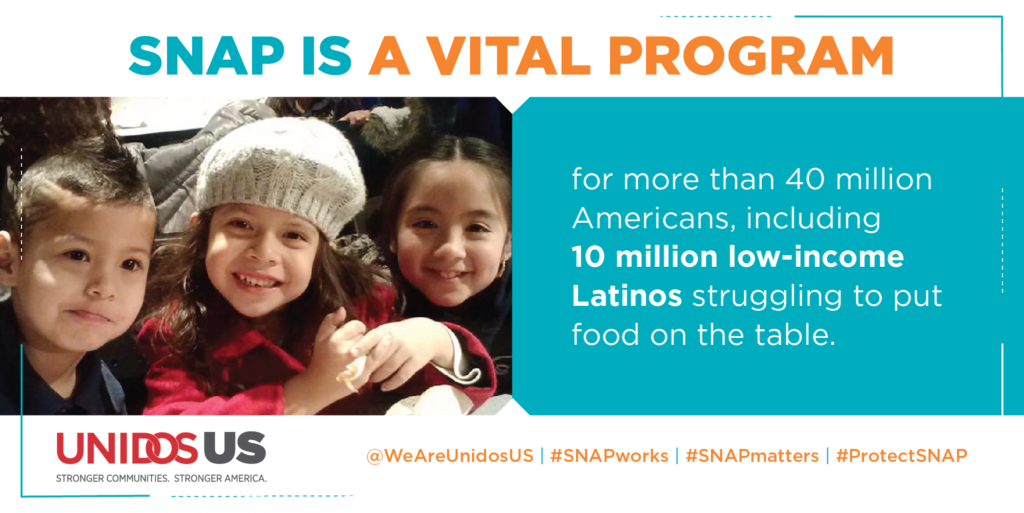A quick update on the farm bill

After months of debate, both the House and Senate passed their versions of the farm bill earlier this year with notable differences, specifically around the Supplemental Nutrition Assistance Program (SNAP). As a reminder, the farm bill is a large piece of legislation that covers many federal policies governing food and agriculture programs, including SNAP, and is renewed about every five years. As we shared in previous blogs, unlike the hyper-partisan House bill that passed by a narrow margin, the Senate farm bill came after months of bipartisan work and passed on an 86-11 vote.
The Senate farm bill, as it relates to SNAP, maintains existing work requirements without making any cuts to SNAP; makes it easier for seniors and people with disabilities to apply for SNAP; and strengthens the relationships between employers and states’ Employment and Training (E&T) programs to connect SNAP participants with local employers and workforce programs, among other favorable provisions. On the other hand, the House version will impose harsher work requirements, on top of already existing stringent requirements, and make drastic cuts to the program, coming just months after passing a tax-cut bill that will benefit large corporations and the richest Americans.
Keep up with the latest from UnidosUS
Sign up for the weekly UnidosUS Action Network newsletter delivered every Thursday.

LEGISLATIVE OUTLOOK: WHAT’S NEXT?
Now that both the House and Senate have passed their bills, the next step in the legislative process is a conference committee where lawmakers from both chambers meet to resolve differences in their bills and produce one final bill for all members of Congress to vote on.
Before leaving for the August recess, the House appointed 47 members to serve as farm bill conferees. These are members who are chosen by Republican and Democratic leaders to help shape the final bill with their chamber’s version and priorities in mind. The Senate appointed nine members. Conferees are scheduled to hold their first full committee meeting on September 5.
Conferees will meet to reconcile differences in their respective farm bills, with SNAP work requirements likely being a highly debated topic. This is all under a looming deadline of September 30, when the current farm bill is set to expire. It is important to note that SNAP participants will continue receiving benefits even if Congress does not meet this quickly approaching deadline.
There is much at stake for the more than 40 million Americans, including 10 million low-income Latinos who look to SNAP to help put food on the table and make ends meet. UnidosUS will continue advocating for a strong bipartisan farm bill that reflects the needs of our community and protects and strengthens critical programs like SNAP. To learn more about our work on protecting federal programs that support working families, visit our Defending Working Families page.


